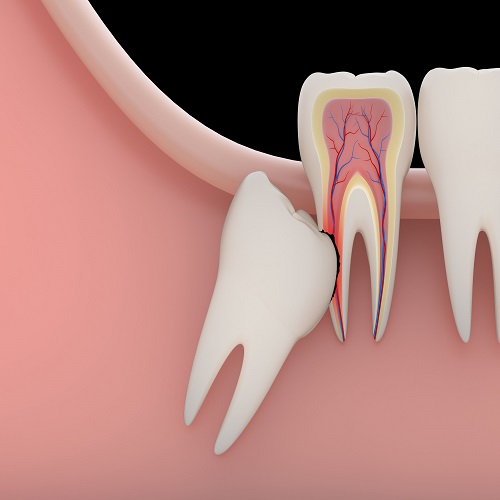
The wisdom teeth are the last four teeth to erupt from the gums – usually between age 17 and 25. Ideally, the teeth should come without any complication. But 9 in 10 Indians have at least one wisdom tooth that is impacted i.e not coming in a proper position. Even if the teeth all erupt normally, they may cause overcrowding or grow in such an angle that can be problematic in the future. For that reason, many of us elect to have their wisdom teeth removed to prevent infection, crowding, and other complications. Sometimes even wisdom teeth that erupt normally may still be vulnerable to decay over time because of the location of wisdom teeth at the back of the mouth, so many patients find it difficult to clean and floss all surfaces of the teeth each day. Do you need your wisdom teeth removed? You may require your wisdom teeth to be removed if you have one or more impacted wisdom teeth or if you are finding it difficult to adequately clean those that have emerged. It is usually recommended that all young adults be evaluated. A consultation and x-ray can show us impaction, damage to neighboring teeth, signs of decay, gum disease, or perceived complications with future wisdom tooth eruption. Wisdom Tooth Removal or Disimpaction What should you expect during a wisdom teeth removal? Most wisdom teeth removals take only minutes to perform, but you’ll be under anesthesia or sedation to prevent discomfort. Once the teeth are removed, the gums are sutured. Will you need to follow any special instructions following wisdom teeth removal procedure? Yes. You’ll need to keep the extraction site clean and free of debris for the first couple of weeks after removal. You’ll also have to take all medications exactly as prescribed by Dr. latha Avoid drinking through a straw for the first several days after surgery, and notify us if you experience fever or discomfort that worsens after a few days.

